
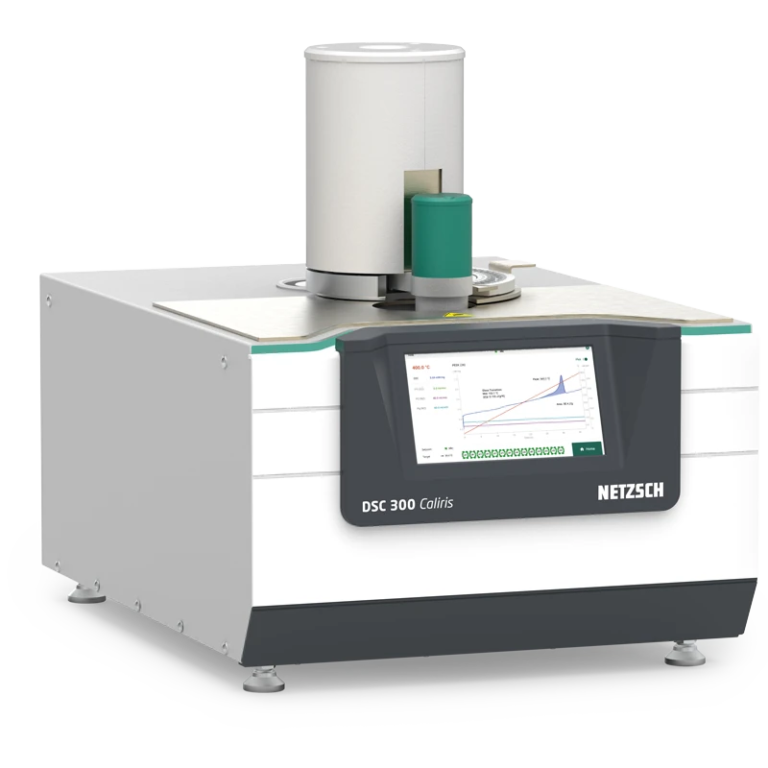
Quality assurance of polymers, food, cosmetics and organics
Compact design for more space in the lab
Temperature range: -170°C to 600°C
Automatic Sample Changer: Up to 20 samples and references
Quality assurance of polymers, food, cosmetics and organics
Choose your appropriate module: Standard, Polymer or High-Performance
Temperature range: -180°C to 750°C
Automatic Sample Changer: Up to 192 + 12 samples and references
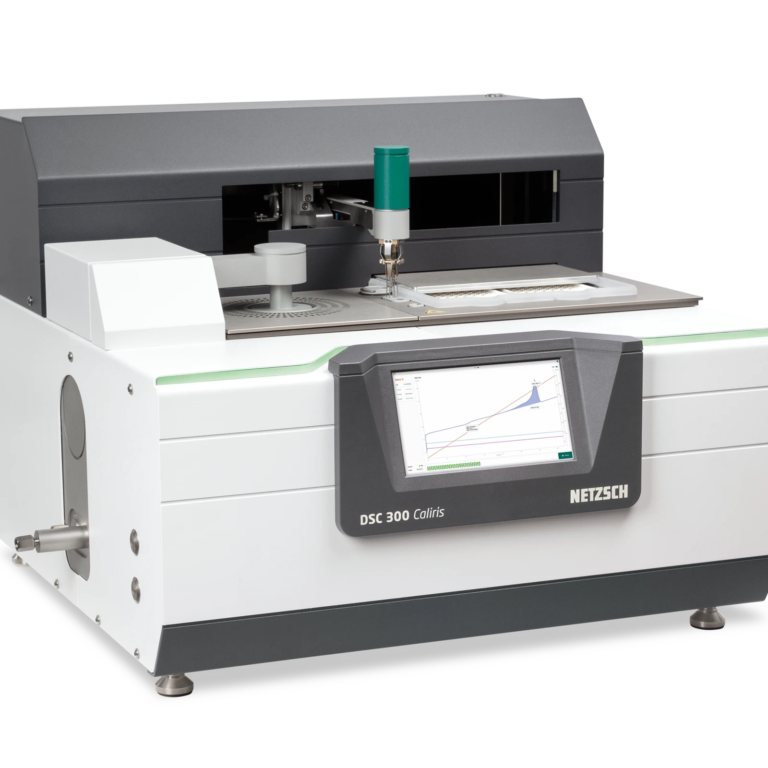
Quality assurance of polymers, food, cosmetics and organics
Three easily interchangeable modules: Standard, Polymer and High-Performance
Temperature range: -180°C to 750°C
UV-Accessory: Investigate
Curing (Crosslinking Reactions)
Literally translated, the term “crosslinking“ means “cross networking”. In the chemical context, it is used for reactions in which molecules are linked together by introducing covalent bonds and forming three-dimensional networks.
curing reactions with photo-calorimeter
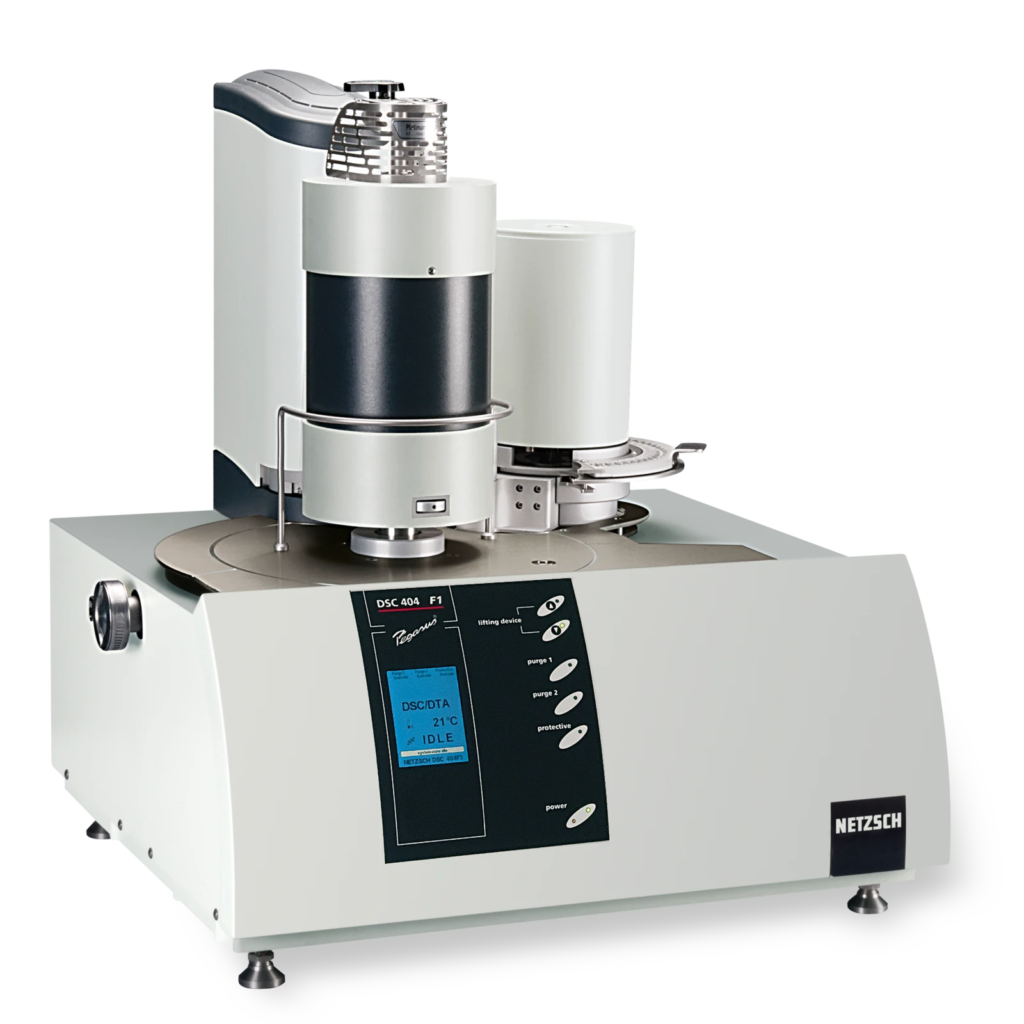
The high-temperature Differential Scanning Calorimeter
Temperature range: from -150°C up to 2000°C
Integrated metal-housed mass flow control systems (MFC) for three different gases
Optional temperature modulation (TM-DSC)
The high-temperature Differential Scanning Calorimeter
Temperature range: from -150°C up to 2000°C
Purge or reactive gas flow control via frits
Seven different types of furnaces available
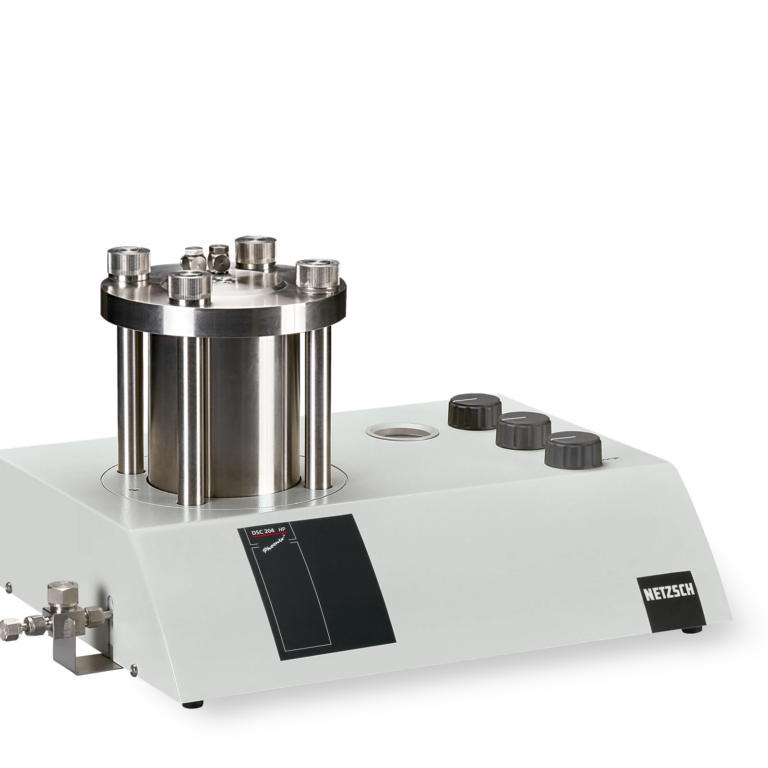
The high-pressure Differential Scanning Calorimeter for specific reactions
Pressure range from vacuum to 15 MPa (150 bar)
Temperature range: -150°C to 600°C
Measurements in inert, reducing and oxidizing atmospheres
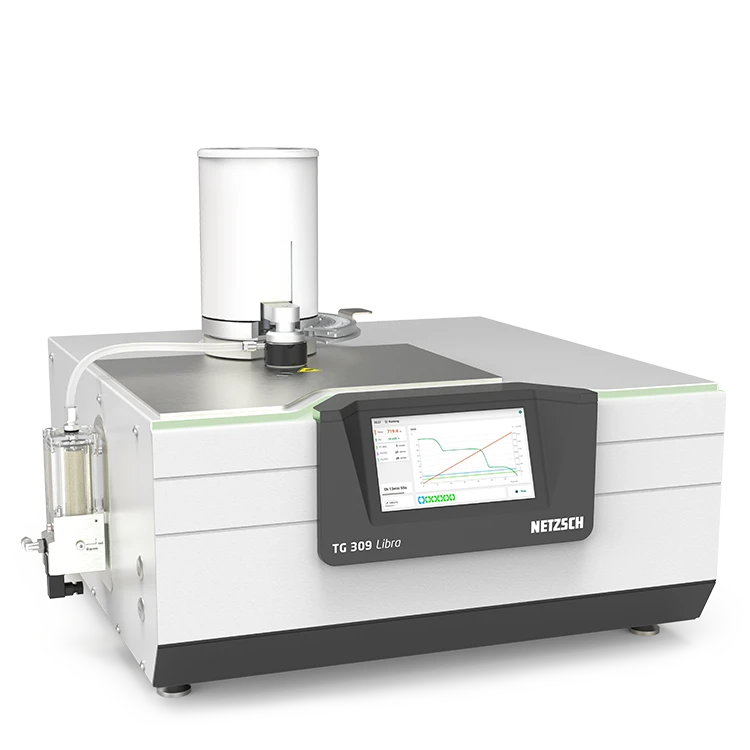
Ensure product quality and safety by detecting mass changes.
The TG 309 Libra® Classic is the device with the best price-performance ratio in the Libra® series. It is the ideal instrument for Quality Control.
Get Results Faster Without a Baseline Run
To ensure accurate mass change values, a baseline run is typically conducted under test conditions that are identical in terms of heating rate, gas type, and gas flow.
Analyze the unique thermal behavior of materials and their components
The TG 309 Libra® Select is the instrument which offers the greatest variety in the Libra series.
Get Results Faster Without a Baseline Run
To ensure accurate mass change values, a baseline run is typically conducted under test conditions that are identical in terms of heating rate, gas type, and gas flow.
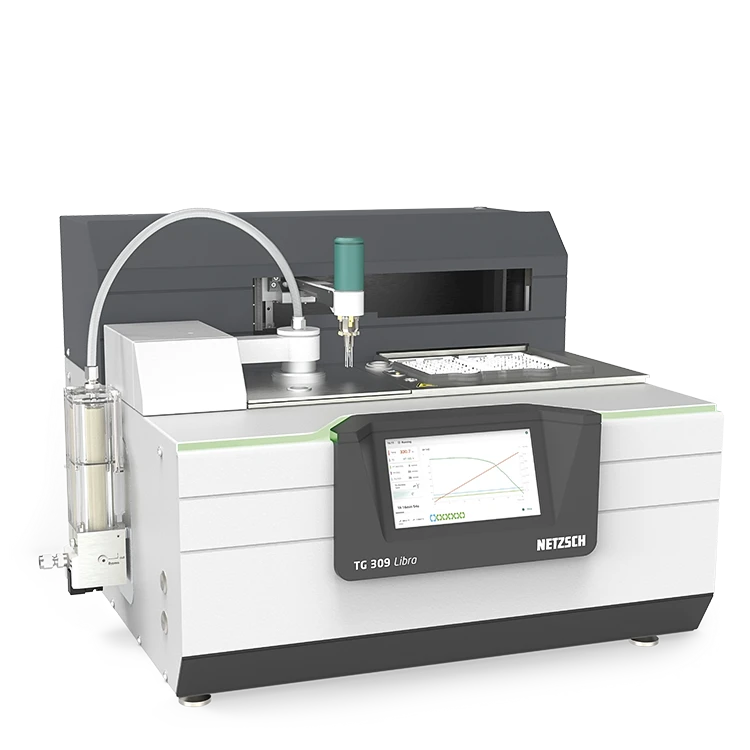
Analyze the unique thermal behavior of materials and their components
The TG 309 Libra® Supreme is the top-of-the-line thermobalance in the Libra® series.
Get Results Faster Without a Baseline Run
To ensure accurate mass change values, a baseline run is typically conducted under test conditions that are identical in terms of heating rate, gas type, and gas flow.
The baseline takes factors such as heating rate, crucible type and geometry into account while also accounting for instrument and buoyancy effects, thus allowing these to be subtracted from the sample measurement.

TG 209 F1 Nevio ‒ the top-quality thermobalance for research and development.
It serves for investigating:
Mass changes
Decomposition reaction
A decomposition reaction is a thermally induced reaction of a chemical compound forming solid and/or gaseous products.
Decomposition behavior
Pyrolysis
Features
Innovative software solutions – AutoEvaluation and Identify
Direct detection of the sample temperature ‒ determination of endo- and Exothermic
1100°C at the sample – the temperature displayed corresponds to the sample temperature
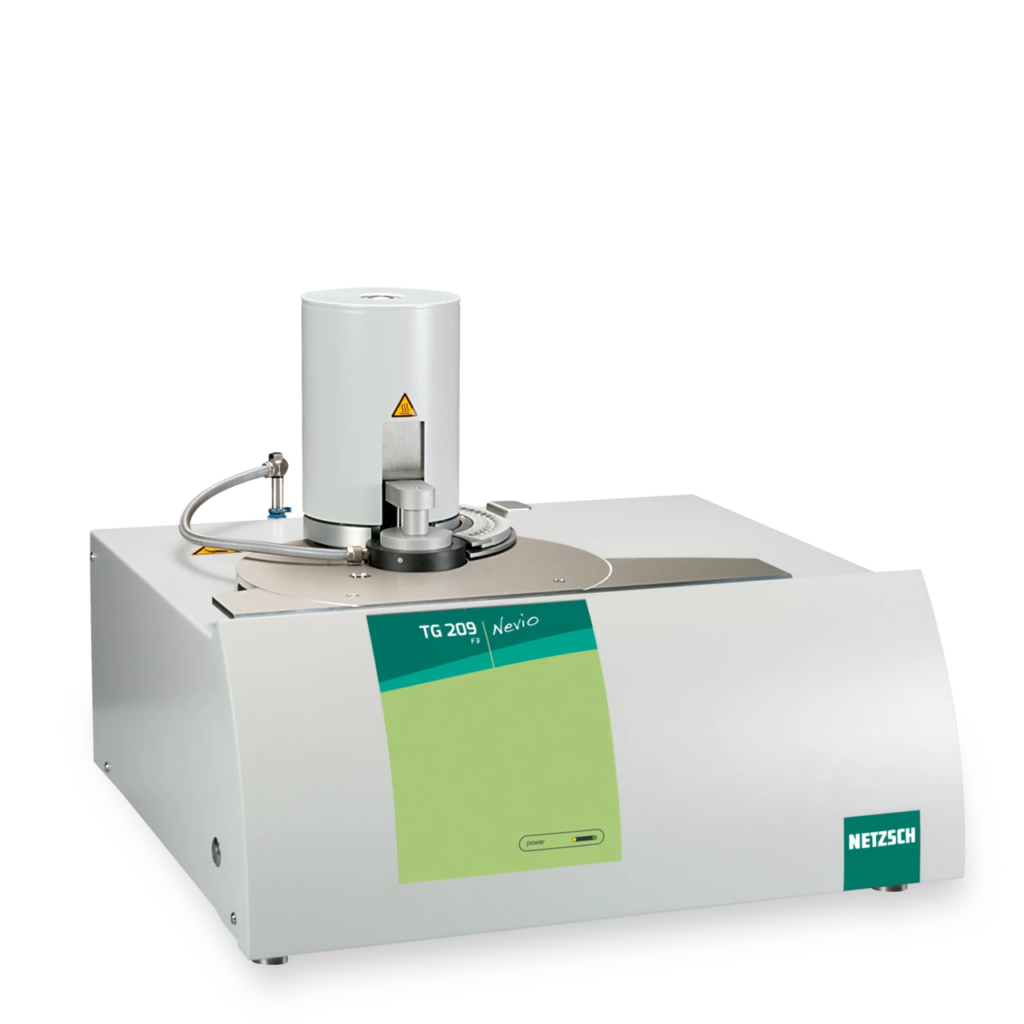
The workhorse for quality control and process optimization.
Information obtained by thermogravimetric analysis (TGA):
Mass changes
Decomposition reaction
A decomposition reaction is a thermally induced reaction of a chemical compound forming solid and/or gaseous products.
Decomposition behavior
Pyrolysis
Pyrolysis is the thermal decomposition of organic compounds in an inert atmosphere.
Pyrolysis
Solvent content
Features
c-DTA® signal for monitoring Endothermic and Exothermic
Tool-free mounting and dismounting of sample carriers
Robust and reliable thermobalance
Robust top-loading balance arrangement
Filter system for trapping Decomposition reaction
The automatic sample changer (ASC) makes routine work easy
The Proteus® Protect software meets the requirements of 21 CFR Part 11.
Faster and more comprehensive characterization of materials
Based on over 50 years of experience in thermogravimetry, NETZSCH has developed the thermobalance TG 209 F1 Libra®
Twice as fast by means of BeFlat®
20 times faster due to high heating rates
More comprehensive and faster characterization by patented c-DTA®
High-performance ceramics for a long lifespan
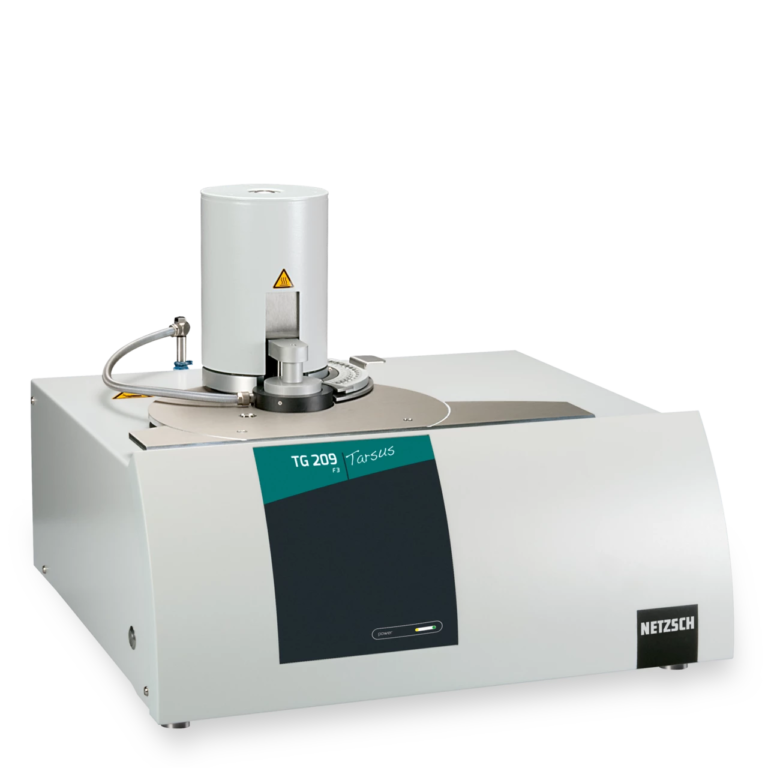
The thermo-microbalance, TG 209 F3 Tarsus®, represents a cost-effective overall concept, tailored not only to the quality assurance of polymers, but also to routine applications in the fields of organic, chemistry, pharmaceuticals, cosmetics and food.
This basic instrument for thermogravimetric measurements offers already a resolution of 0.1 µg. The TG 209 F3 Tarsus® operates between room temperature and 1000°C with freely selectable heating rates from 0.001 K/min up to 200 K/min. The accurate sample temperature is detected by a thermocouple in direct contact with the sample crucible. Through the reliable vertical construction with sample carrier lift, the thermo-balance as a top-loader, is easy and safe to use, with no hang-down wires or exposed fragile parts.
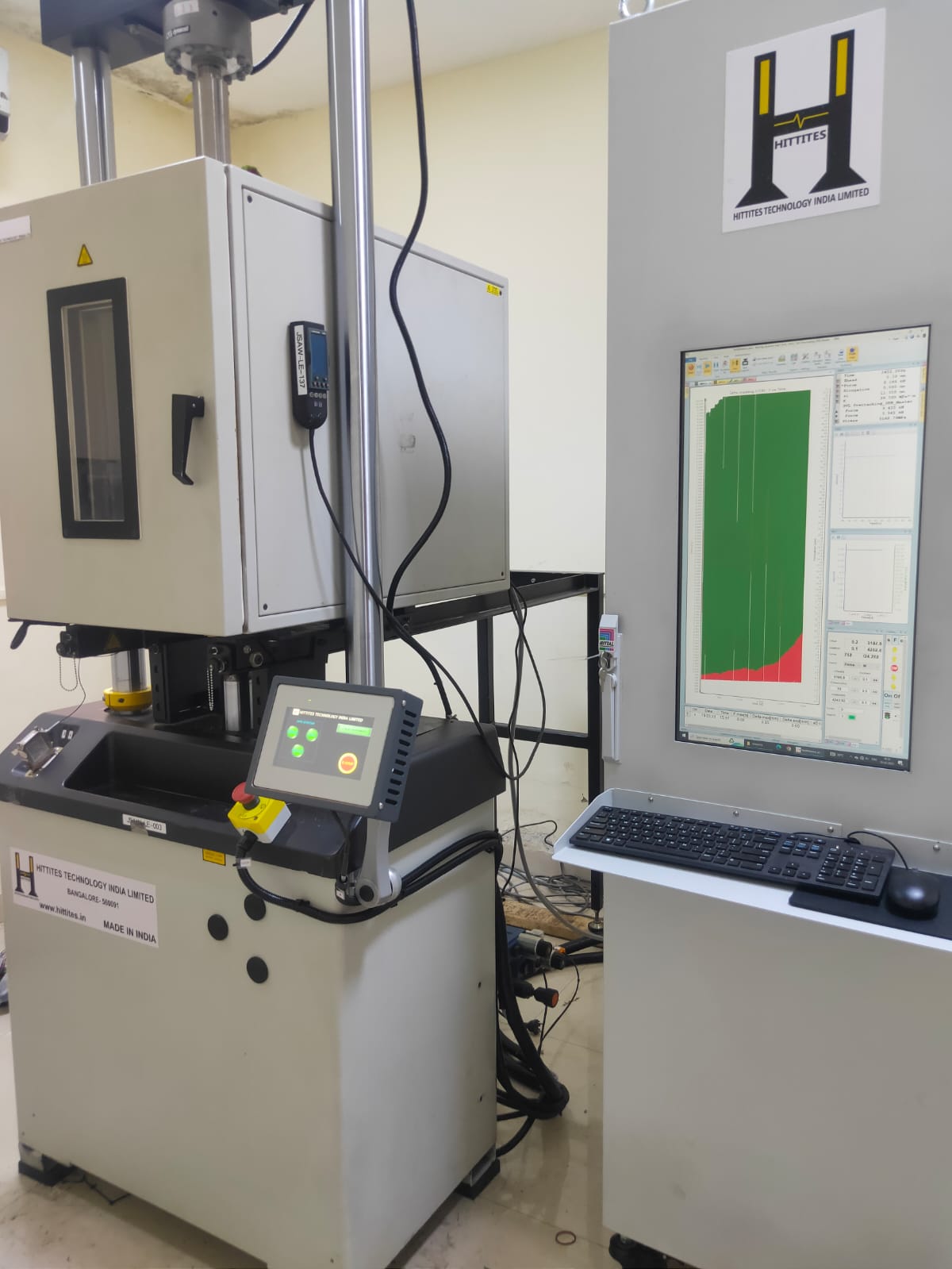
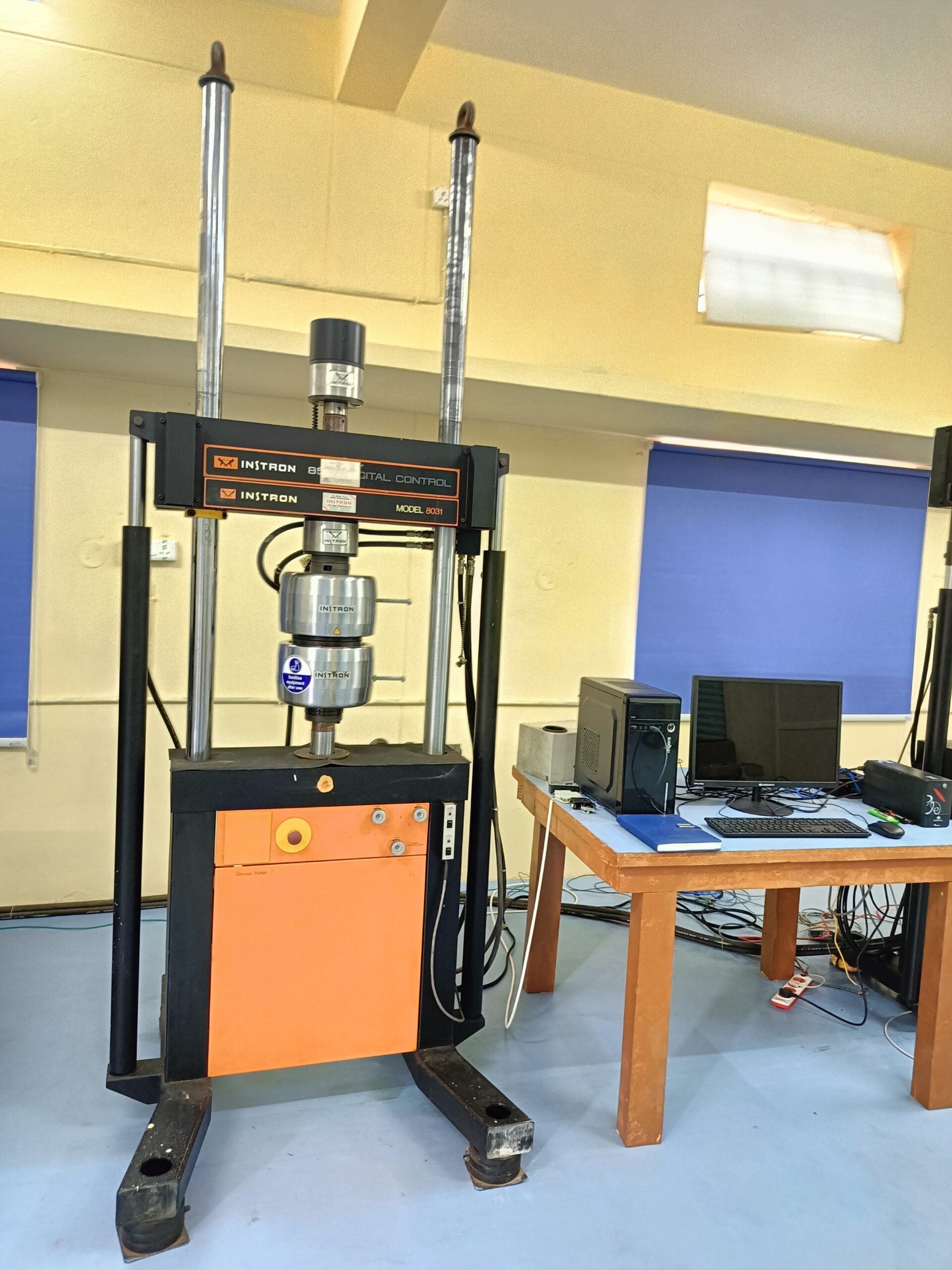

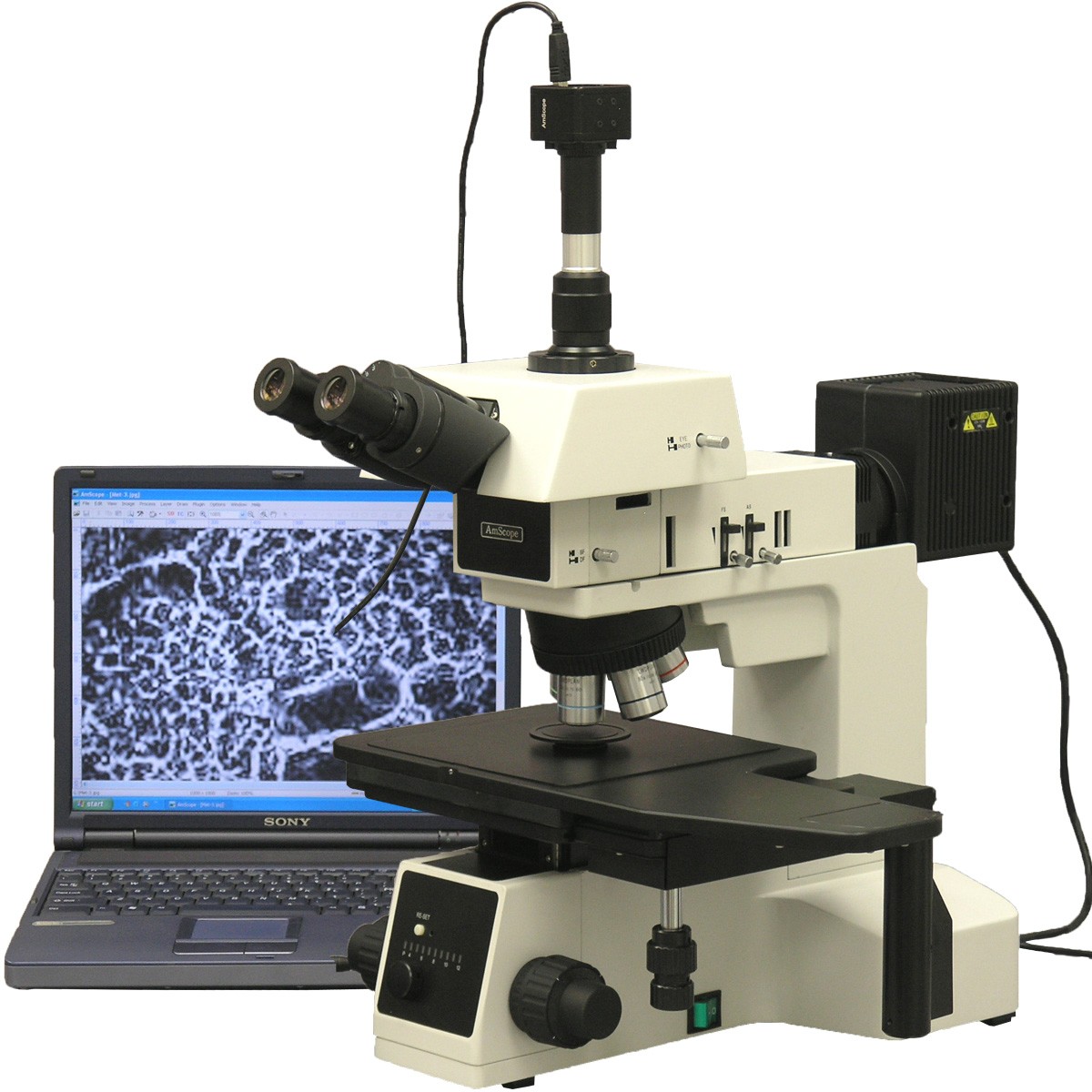
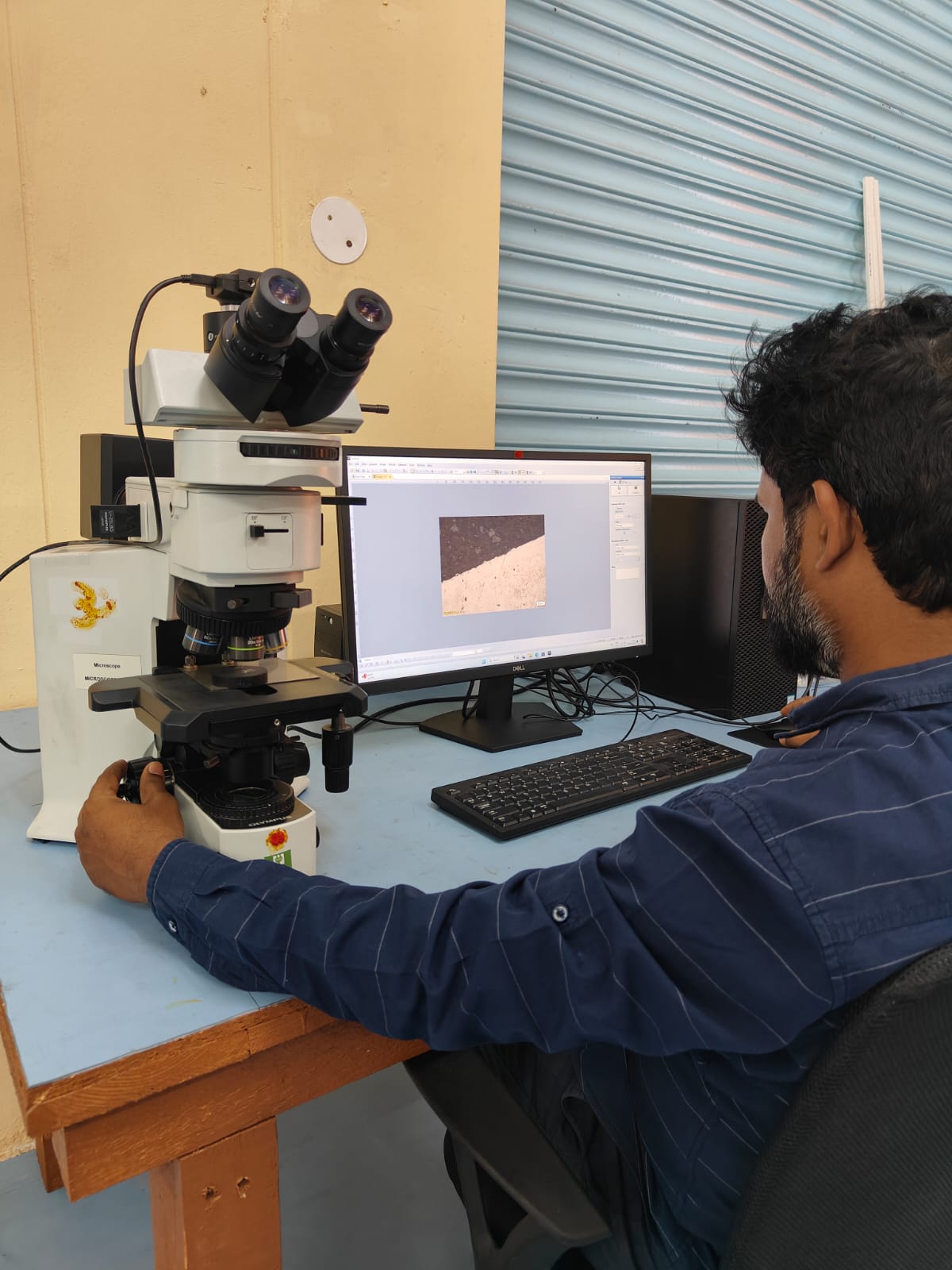
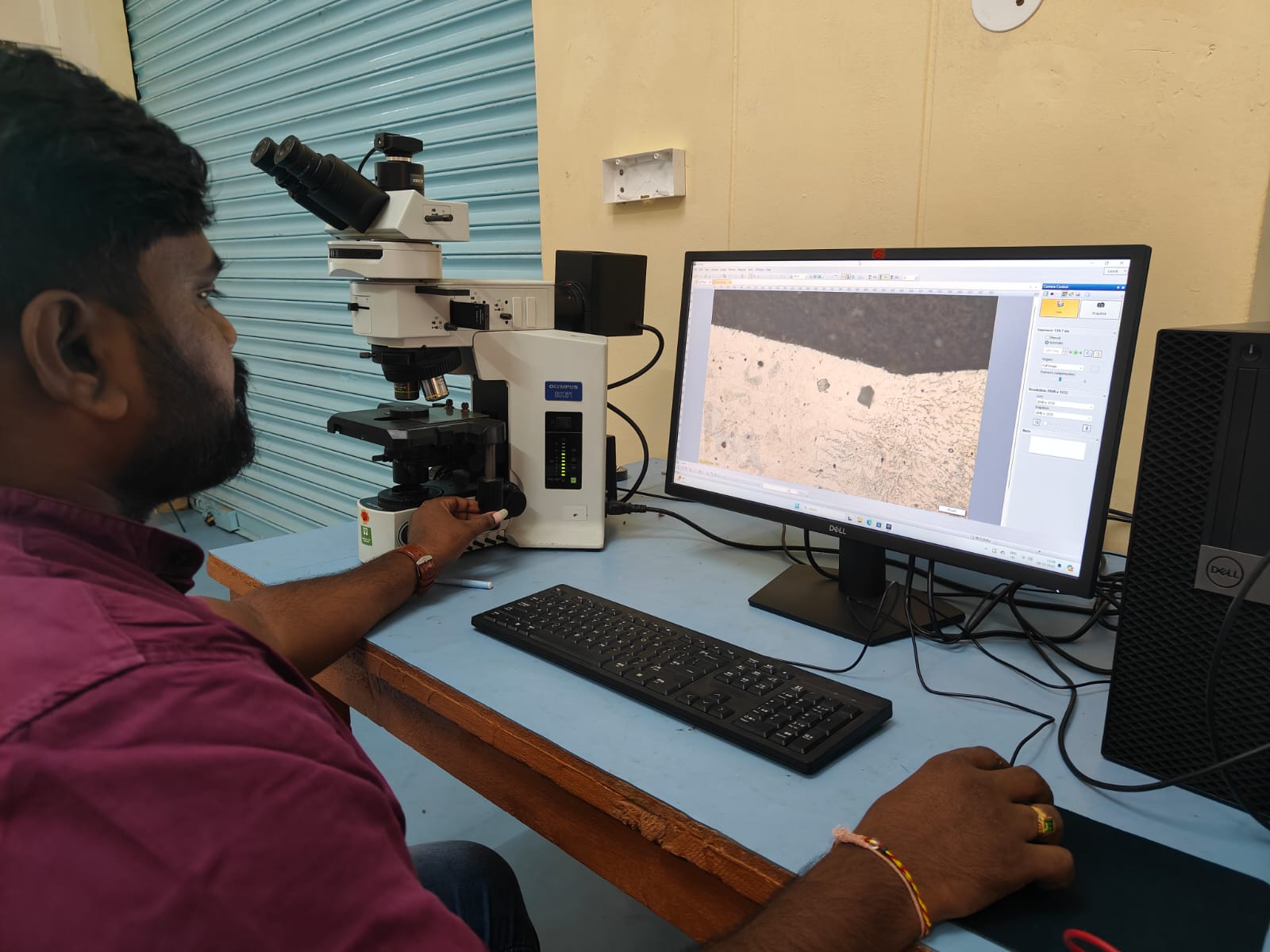






©2024 All Rights Reserved